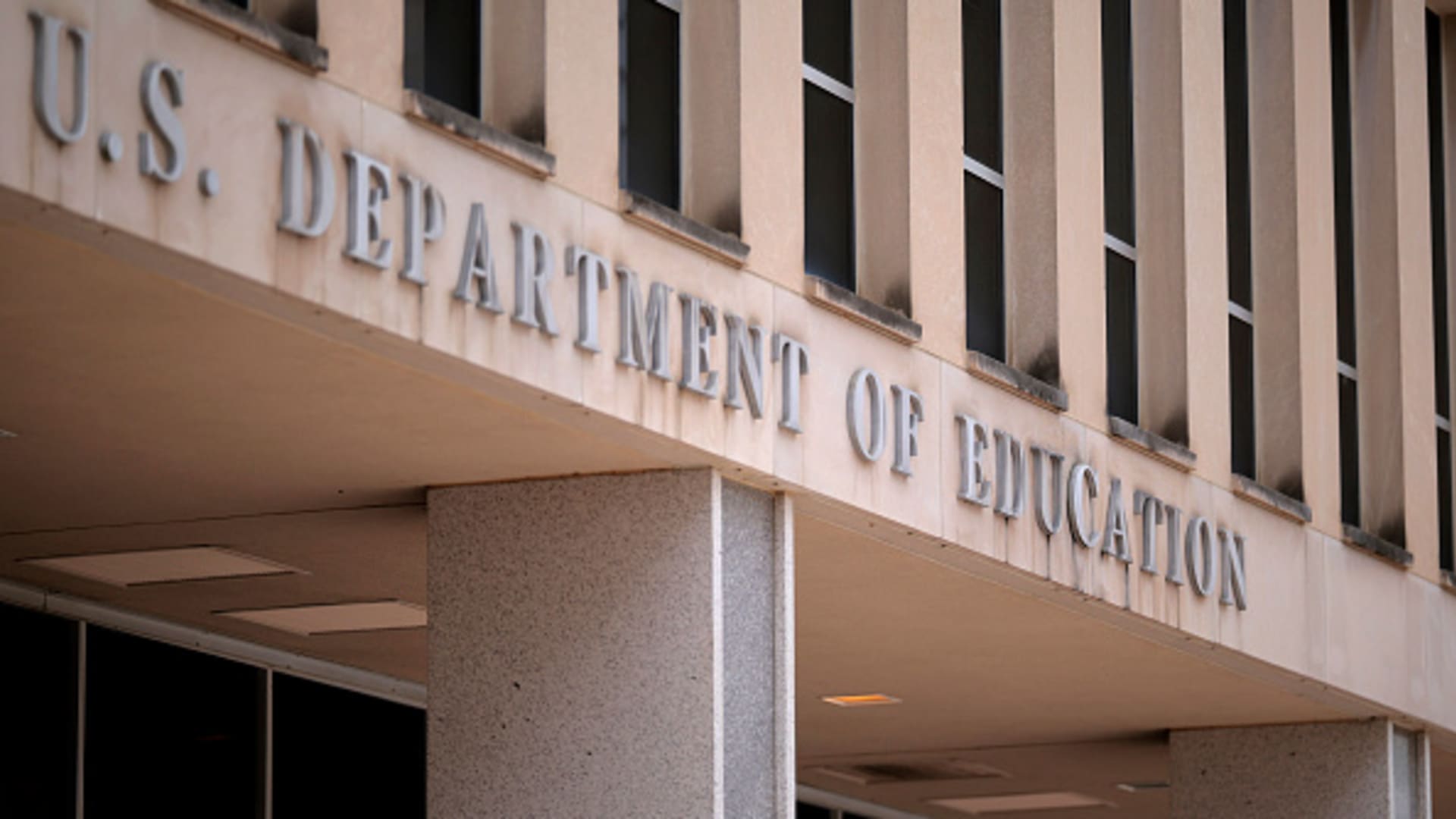Aerial view of tract housing neighborhood in Boise, Idaho, USA.
Simonkr | E+ | Getty Images
Renting is taking off in the suburbs as homeownership remains out of reach for many would-be buyers.
Between 2018 and 2023, rentership surged by at least 5 percentage points in 11 out of 20 suburbs surrounding the largest U.S. metro areas, according to a recent analysis by Point2Homes, a rental market research company.
During the same period, 15 suburbs went from being predominantly composed of homeowners to majority-renter communities. The trend spans fast-growing Sun Belt metros like Dallas, Houston and Miami as well as Northeastern cities like Boston and Philadelphia.
In five of those top 20 metro areas — Dallas, Minneapolis, Boston, Tampa and Baltimore — the suburbs are gaining renters faster than the urban centers they surround, Point2Homes found. The share of residents who rent surged in the Dallas suburbs by 17.6% from 2018 to 2023, while that rate rose just 7.9% in the city itself — with the nearby suburbs of Frisco, McKinney and Grand Prairie each gaining over 5,000 renter households apiece during that period.
Back in 2018, it was harder to buy a home in Dallas County, where most of the city sits, than it was in the metro area’s more suburban counties, like those including Frisco, McKinney and Grand Prairie — suburbs where the ranks of renters have swelled faster than virtually anywhere else, Point2Homes found. That’s no longer the case: Homebuying is now more difficult in the suburban counties surrounding Dallas than it is in Dallas County itself, the NBC News Home Buyer Index shows.
Housing affordability is a nationwide problem spanning cities and suburbs alike.
Mortgage costs have risen sharply since the pandemic, pricing out many prospective buyers in all sorts of in-demand areas. Average interest rates on the popular 30-year fixed home loan currently hover just under 7%, levels not seen since before the 2008 financial crisis. In a market this tough, some housing experts say the proliferation of rental properties has helped keep suburban lifestyles accessible to people who otherwise couldn’t afford them.
A “For Rent” sign is placed in front of a home in Arlington, Virginia, U.S., June 8, 2021.
Will Dunham | Reuters
“You have your own land, you have kids or you have a dog, and you want that space,” said N. Edward Coulson, a professor at the University of California, Irvine, and the director of its Center for Real Estate. “They get all that amenity from having a single-family home.”
Mark, a suburbanite just outside Chicago who asked to be identified by his first name to avoid professional blowback for weighing in on hot-button housing issues, said the type of property he has rented for three years is out of budget for him to buy. He estimated many comparable properties in the area would cost 30% more in monthly housing payments than his current rent, and he’s considering leaving the area so he can purchase someplace else.
“If I want to stay here, it’s basically not tenable,” Mark said.
Andrew Decker, a renter in Lake Villa, Illinois, halfway between Chicago and Milwaukee, said he and his family would love to buy the property where they live now, which he said was offered to him for $340,000.
“We would like to make it our forever home if we could afford it, but it’s just so expensive,” Decker said. “If they were to come at me and tell me that, ‘Hey, you can buy this house for 200 grand today,’ I’d pull the trigger tomorrow. I wouldn’t even hesitate. But 340’s crazy.”
Tara Raghuveer, who runs the tenant advocacy group Tenant Union Federation, said affordability issues that have fueled the suburban rental boom threaten to push people farther from urban cores.
“As people are moved out of the city, they’re further from transportation, they might be further from employment, they might be living in homes that are not necessarily connected to other people like them, which impacts things like child care, Social Security,” Raghuveer said.
Landlords, however, tout the benefits that come from renting in the ‘burbs.
“The ability to have one payment that covers all your expenses generally — you don’t have to deal with the mortgage payment and the home insurance and maybe the HOA and then a lot of maintenance expense, so on — has been something that for a lot of people has been worth it,” said George Ratiu, vice president of research at the National Apartment Association trade group, which represents rental operators.
A construction worker helps builds a roof on a residential homes in Irvine, California, U.S., March 28, 2025.
Mike Blake | Reuters
Developers have also been building different types of properties for suburban tenants, including multifamily complexes. Jay Parsons, a housing economist and host of “The Rent Roll” podcast, points to the rise of “suburban downtowns,” partly fueled by the pandemic-era shift to remote work. These mixed-use developments are typically aimed at offering younger families a balance between urban convenience and suburban amenities, he said.
“You can still be close to your job. You can be close to nice restaurants and shops but live in a suburban area where you’re still using a car, and you still have probably a rent that’s more affordable than living in most downtowns,” Parsons said.
Coulson doesn’t expect the appeal of the suburbs to fade anytime soon, which could prop up prices in many of them for buyers and renters alike.
“If you work downtown, it’s still an advantage to live downtown, but it’s not as great an advantage” as it used to be, he said, now that remote work remains commonplace — despite an ongoing drumbeat of return-to-office mandates. “What that does is also raise the cost of living in the suburbs, because now more people want to live in the suburbs.”
“That’s a dynamic that’s going to have to work itself out a little bit more before we know the final impact on suburban versus downtown pricing,” he said.


 Economics6 days ago
Economics6 days ago
 Economics1 week ago
Economics1 week ago
 Economics6 days ago
Economics6 days ago
 Finance6 days ago
Finance6 days ago
 Economics6 days ago
Economics6 days ago
 Economics4 days ago
Economics4 days ago
 Blog Post5 days ago
Blog Post5 days ago
 Personal Finance4 days ago
Personal Finance4 days ago










